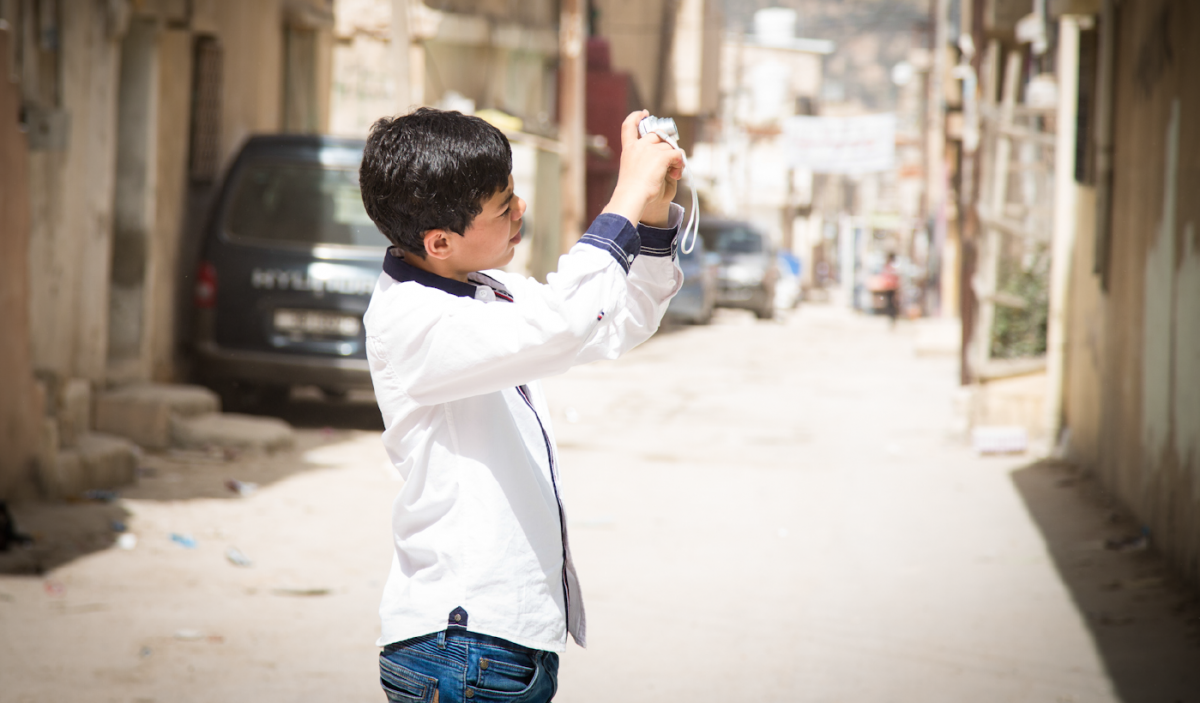.jpg)
_1-itok=GFMKQ6A9.jpg)
"I love taking pictures," says 14-year-old Mohammad Abu Faris, a shy smile sweeping across his face. "If someone was taking pictures for the first time, I would tell them to take one of a girl and a boy playing, because this represents gender equality and it's beautiful."
This was just one of many positive affirmations on gender equality articulated by recent participants in Amazing Voices, a photography project that teaches children and young people how to master the use of a camera, and then empowers them to represent themselves and tell their own personal story using photographs.
The latest participants in the project were children living in Al Baqa'a refugee camp in Amman, Jordan. All of them take part in Generation Amazing, the Supreme Committee for Delivery & Legacy's (SC's) flagship corporate social responsibility programme, which uses the power of football to bring about social change in vulnerable communities.
The coaches – all trained in delivery partner Right To Play's football-based learning and development approach – use football drills involving dribbling and passing to teach the girls and boys social skills like teamwork, acceptance and cooperation, and to create awareness about inclusion and gender equality, while motivating girls to participate.
Growing up in the conservative environment of Jordan's Al Baqa'a refugee camp hasn't always provided strong examples of gender equality. Many of the camp's residents follow traditional customs like marrying girls at the age of 16 or younger, and prohibiting girls from playing games and sports outside of the family home.
"The children live in hard conditions," affirms Qusai Al Atiyat, a Generation Amazing coach and field facilitator for Right To Play Jordan. "Until Generation Amazing came along, there were no resources to entertain them and there are no after-school programmes. Even if there were, most of the girls would not have been allowed to participate.
"We talked to the parents in the community and encouraged them to let their daughters join. Progress was very slow in the beginning, but once the parents saw their children growing in confidence, respect and self-esteem, they trusted us and allowed their daughters to join in."
Baraa Saadeh, 14, is one of 500 girls now enrolled in Generation Amazing.
"When I started playing football, I realised I could play just as good as the boys and I began to see that nobody is better than anybody else," she told us. "At first, my only dreams were to score a goal, but now I want to be a professional football player when I grow up, and an art teacher."
Of the 500 male participants, 14-year-old Majd Al Din Ghraifat is one of many that are now speaking out for girls' rights.
"Girls can do what I can do, now," he said. "I've also learned how to treat girls and that we're all the same. Once the girls started playing football and we convinced the others that girls were skillful, maybe even more skillful than the boys, they started to listen to what the girls had to say and began to respect them as equals."
Thanks to Generation Amazing, there are signs that things are starting to change in Al Baqa'a. In a recent survey, 98% of the youth in the programme said that they now believe they have the ability to make their community a better place to live in. That's a 31% increase from when these girls and boys first joined Generation Amazing a year ago.
You can view some of the gender equality-themed photographs that were taken by Generation Amazing children as part of the Amazing Voices project in the slideshow below.

